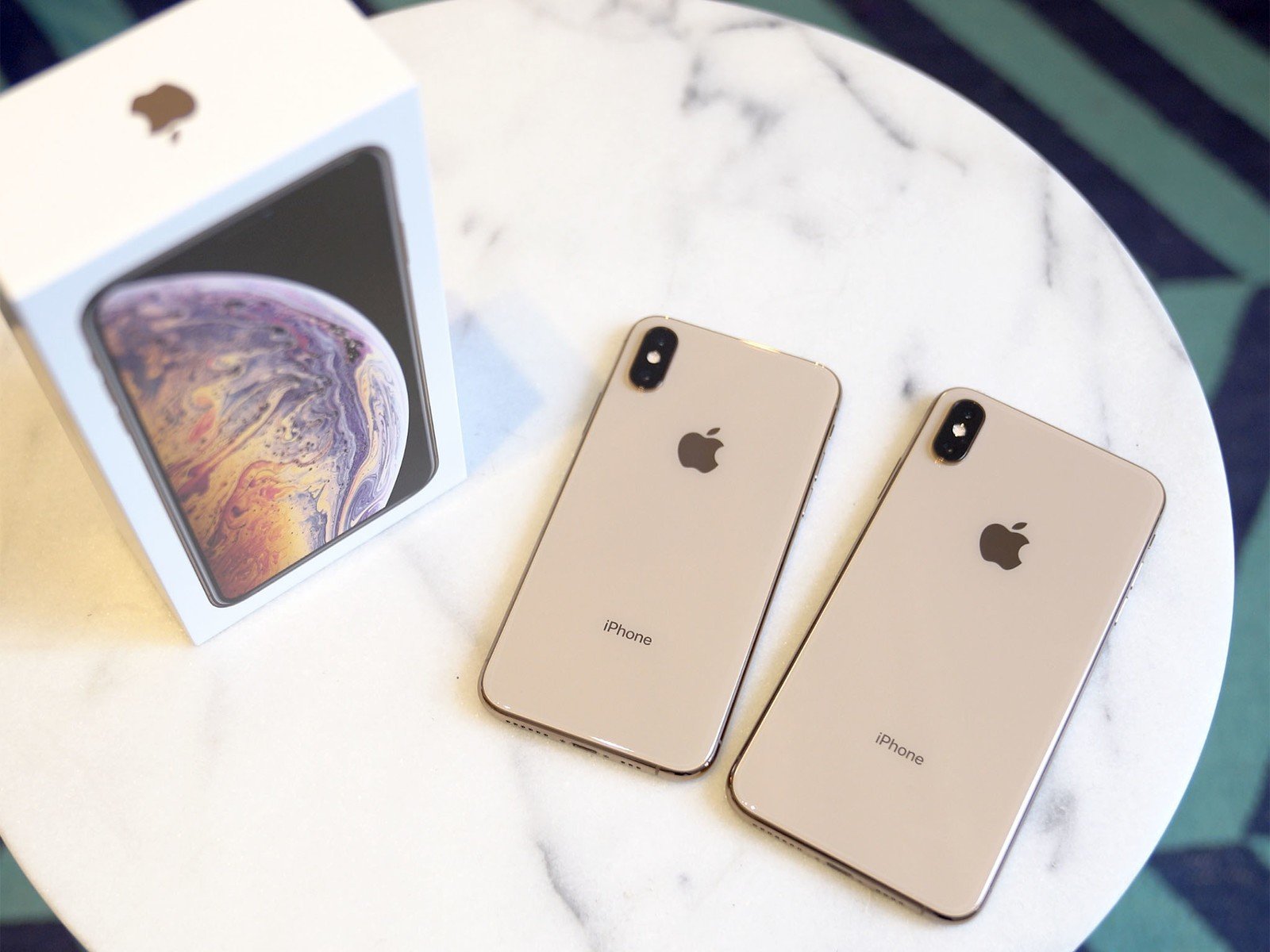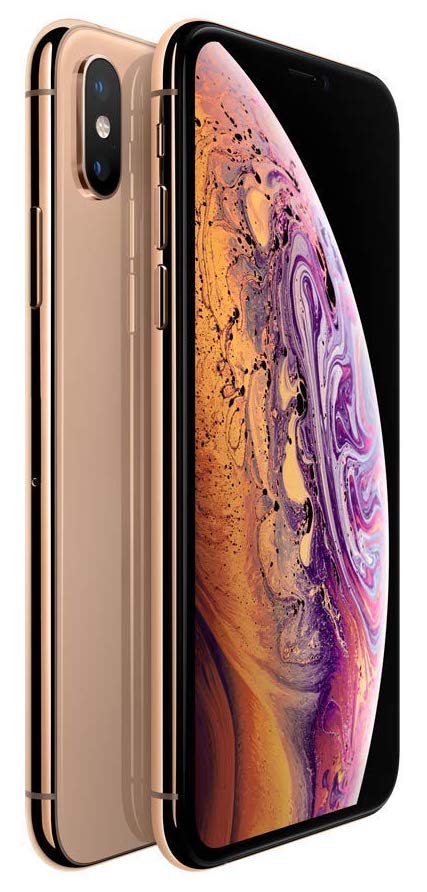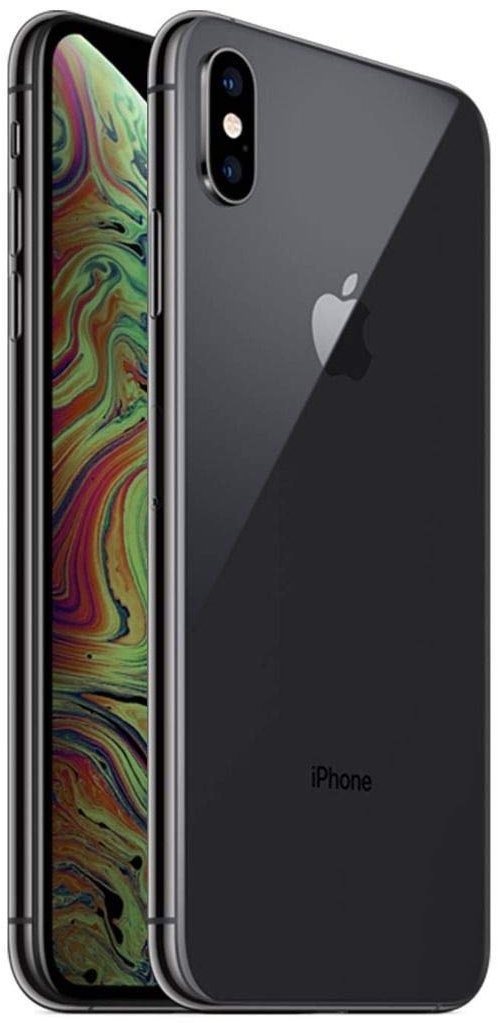iPhone XS vs iPhone XS Max: Which should you buy?

iMore offers spot-on advice and guidance from our team of experts, with decades of Apple device experience to lean on. Learn more with iMore!
You are now subscribed
Your newsletter sign-up was successful

Apple's best
The iPhone XS offers a 5.8-inch OLED display on a device about the size of the 4.7-inch iPhone 8. Beside the iPhone XS Max, you can feel the size difference, not just in length and width, but also weight. The iPhone XS is noticeably lighter than its larger counterpart, and combined with its smaller size, it'll fit better in your pocket. Just as powerful as the iPhone XS Max, it unfortunately does not measure up to Apple's largest phone in one key area: battery life.
Pros
- Large screen in a compact body
- Lighter than iPhone XS Max
- Fits better in your pocket
- Just as powerful as iPhone XS Max
Cons
- Shorter battery life than iPhone XS Max

The best, but bigger
The iPhone XS Max features the largest iPhone display to date at 6.5 inches, though the body of the phone is actually very slightly smaller than 2017's iPhone 8 Plus. A millimeter here or there might not seem like much, but the iPhone XS Max is much easier to use one-handed than previous large iPhones. And the bigger size comes with advantages over the smaller iPhone XS, and the iPhone XS Max has a bigger battery and longer battery life. But the size also comes with a price, as the phone is heavier than the iPhone XS, and doesn't fit in your pocket as well.
Pros
- Biggest iPhone screen
- Better one-handed usage than previous large iPhones
- Longer batter life than iPhone XS
Cons
- Heavier than iPhone XS
- Doesn't fit in pockets as easily
If you're looking to pick up either the iPhone XS or iPhone XS Max, you should ask yourself what you really need from your iPhone. Save for a couple of significant differences, these are very much the same phone. So, unless you need the screen size or additional battery life of the iPhone XS Max, I'd actually recommend the iPhone XS for most people. That being said, if you do find yourself needing more battery, or you just want the biggest display that Apple's ever used on an iPhone, you'll love the iPhone XS Max.
Breaking it all down
One of the great things about Apple's flagship iPhone lineup is that both phones are mostly the same, except for battery life and screen size. If you get the iPhone XS, for instance, you won't be missing out on any extra performance that the iPhone XS Max might have, because they have the exact same A12 Bionic system-on-a-chip.
The single biggest advantage that the iPhone XS Max has over the iPhone XS is the battery life. While factors like size, weight, and screen size often come down to personal preference, battery life is fairly concrete. I don't know a person who would say "I wish my phone had less battery life." While some differences in battery life between the phones are relatively minor (the iPhone XS Max should get up to an hour of additional internet use and video playback, for instance), some are not. The iPhone XS Max gets up to an additional five hours of talk time and audio playback each compared to the iPhone XS.
Meanwhile, the iPhone XS's advantages come down more to personal taste. Some people would rather have an overall smaller phone, even if it meant giving up the iPhone XS Max's larger display, but others wouldn't make that trade-off. The same goes for the size and weight (it should be noted that, while the extra weight of the iPhone XS Max is noticeable, it's not a massive increase over the iPhone XS). If you have smaller hands and like to use your phone one-handed, the iPhone XS is probably best for you. The same goes if you have smaller pockets. But if you have bigger pockets, or you keep your iPhone in a bag or purse, you might be just fine with the larger iPhone XS Max.
Here's how the specs of each phone break down. As you'll see, they really are mostly the same phone.
| Header Cell - Column 0 | iPhone XS | iPhone XS |
|---|---|---|
| Cost | From $999 | From $1099 |
| Colors | Black, White, Gold | Black, White, Gold |
| Chip | A12 Bionic | A12 Bionic |
| Storage capacity | 64GB, 256GB, 512GB | 64GB, 256GB, 512GB |
| Display | Super Retina OLED | Super Retina OLED |
| Size | 5.8-inch | 6.5-inch |
| Resolution | 2436x1125 | 2688x1242 |
| Pixels-per-inch | 458 PPI | 458 PPI |
| 3D Touch | Yes | Yes |
| Fast charging | Yes, with 18W adapter or higher | Yes, with 18W adapter or higher |
| Face ID | Yes | Yes |
| Rear camera | Dual 12MP/4K | Dual 12MP/4K |
| Front camera | 7MP TrueDepth | 7MP TrueDepth |
| Portrait Mode | Yes | Yes |
| Depth Control | Yes | Yes |
| Gigabit-class LTE | Yes | Yes |
| Wireless charging | Yes | Yes |
| Water resistance | Up to 2m for 30 min | Up to 2m for 30 min |
Despite the fact that it's advantages are mostly down to personal taste, I'd still recommend that most people get the iPhone XS over the iPhone XS Max. If you know you need the battery life and either want or will deal with a bigger phone and an additional $100 to get it, by all means, pick up the iPhone XS Max. If you're not sure you need either more battery life or a larger screen, get the iPhone XS.
I say this as someone who uses the iPhone XS Max everyday without regret. But I wanted the larger screen, and so I knew exactly why I was getting the iPhone XS Max, and what the trade-offs would be. Generally, unless the larger iPhone has something specific that you want, I'd recommend getting the smaller one. Overall, you're going to have a better experience in day-to-day use, from just pulling it out of your pocket to using it with one hand. And when there are no sacrifices in performance, that's even better.
iMore offers spot-on advice and guidance from our team of experts, with decades of Apple device experience to lean on. Learn more with iMore!

The flagship iPhone most people should get.
The latest flagship iPhone from Apple is a solid iteration on the changes that originally appeared in the iPhone X, with Face ID, a beautiful OLED display, and an edge-to-edge display, powered by an even better custom chip and improved cameras.

Just like the iPhone XS, but bigger in every dimension.
While mostly the same device as the iPhone XS, the iPhone XS Max features a bigger display, bigger overall frame, and a bigger battery. Still a good choice, but those who aren't sure whether they want a bigger phone might find using it a little more frustrating than they anticipated.
Joseph Keller is the former Editor in Chief of iMore. An Apple user for almost 20 years, he spends his time learning the ins and outs of iOS and macOS, always finding ways of getting the most out of his iPhone, iPad, Apple Watch, and Mac.

